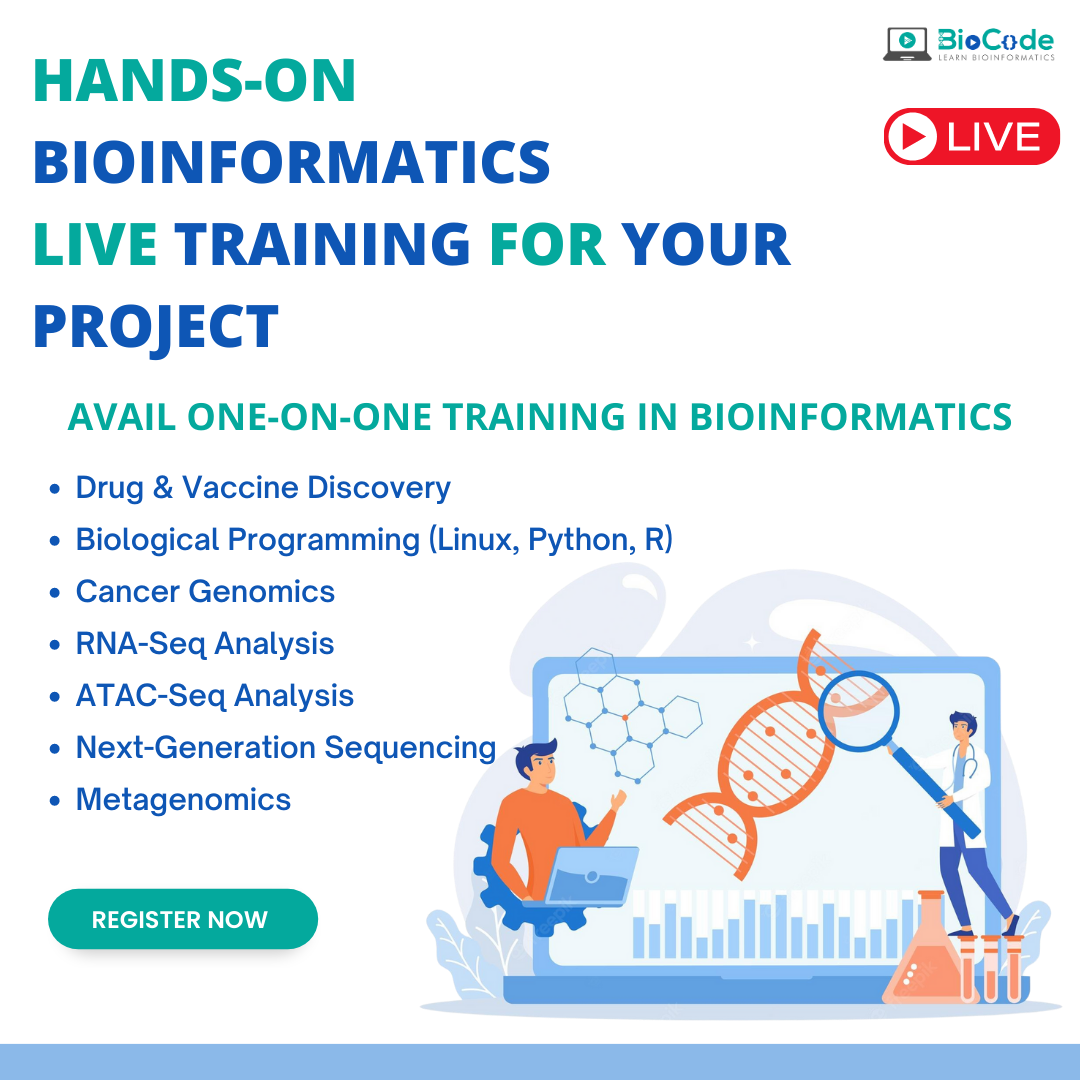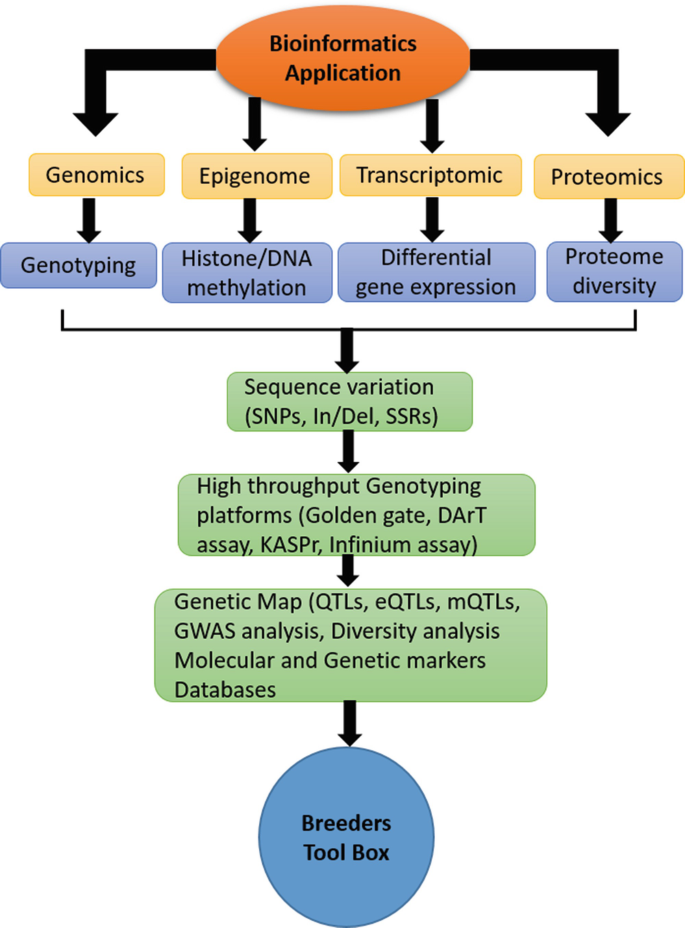Bioinformatics Tutor for Beginners
Bioinformatics Tutor for Beginners
Blog Article
What Does Bioinformatics Tutor Do?
Table of ContentsThe Buzz on Bioinformatics TutorThings about Bioinformatics TutorA Biased View of Bioinformatics TutorAn Unbiased View of Bioinformatics TutorBioinformatics Tutor for Beginners
Preliminary task advancement is relatively time-consuming, as it entails mindful preparation of the topic, structuring of deliverables, and consideration of the skills and experience levels of individuals. Once a job has actually been clearly specified and carried out, it has the possible to be reused in future sessions with only small revisions to show updates in the area or fit distinctions in individual histories. This makes project-based learning a effective and lasting training method in the future, especially in rapidly progressing techniques like bioinformatics.To make certain connection and reproducibility of knowing, offering common laboratory note pads-- either physical or electronic-- is crucial. These notebooks work as collective logs where trainees can tape-record their development, code, methods, and results throughout the training course. Not just do they enhance learning by encouraging documentation and reflection, but they also serve as post-course reference materials that individuals can consult in future research or academic tasks.
Advisors play a crucial role in the success of project-based training courses. Coaches additionally act as function versions and influence students to continue seeking occupations in computational biology and related fields.
A Biased View of Bioinformatics Tutor
An additional key element of the understanding process is offering individuals the possibility to present their work to others, especially to a target market past their immediate job group. Last discussions or mini-conferences allow pupils to verbalize their searchings for, obtain constructive comments, and gain self-confidence in communicating scientific content. This presentation element is commonly a favored among students, as it validates their efforts and highlights the real-world relevance of their work.
The efficiency of this technique was confirmed by the extremely favorable comments gotten after the preliminary training course was used. The success motivated repeat offerings of the very same training course style in 2015 and 2016. Each version of the program was fine-tuned based upon participant comments and progressing finest methods in pedagogy. These adaptations guaranteed that the core objectives-- hands-on learning, collaboration, and applied analytic-- continued to be undamaged while broadening the deepness and breadth of topics covered.
A remarkable visualization that caught participant view was a word cloud created from actions to the 2014 end-of-course survey. Individuals were asked, "What was the most effective part of the training course?" and their actions were put together right into a visual word cloud. In this representation, the dimension of each word suggests how regularly it was discussed, with words like "hands-on," "collaboration," "real-life issues," "assistance," and "interactive" showing up most prominently. This aesthetic comments reinforced the program's focus on experiential learning and advisor support.
The payments of individuals such as Rustici, G., Orchard, S., Cowley, A., and Twells, R., along with various other participants of the EBI user-training-working group, contributed in improving the training course framework and content. Their insights helped shape a comprehensive and adaptable model that might be adjusted to various institutional and regional contexts.
Unknown Facts About Bioinformatics Tutor

Jones, Rasmussen, and Moffitt (1997) likewise advocated for interdisciplinary discovering via collective task work, noting its capability to simulate expert settings and prepare students for future scholastic or sector roles. In a thorough testimonial, Thomas (2000) evaluated several researches on PBL and concluded that trainees not just perform well academically however additionally develop a deeper understanding of the topic and boosted teamwork skills.
In the context of bioinformatics education and learning, cutting-edge techniques like classroom video games and simulation-based training have actually also been employed. Schneider and Jimenez (2013) presented the usage of interactive video games to teach biological data integration, allowing trainees to comprehend intricate principles via experiential understanding. This kind of gamification complements the hands-on learning emphasized in project-based programs by introducing an element of fun and competition, which can even more enhance engagement.
Returning to the course discussed here, the lessons learned from the implementation of project-based learning in a bioinformatics establishing have more comprehensive effects for various other STEM areas. The method highlights not just technical proficiency, yet also interaction, partnership, and crucial thinking-- skills that are increasingly valued in both academia and sector.
Some Known Incorrect Statements About Bioinformatics Tutor
The scalability of the training course style also makes it a sensible design for various other organizations. With suitable customization based upon local requirements, offered resources, and individual profiles, the structure can be replicated or adapted for usage in various other scientific domain names. Additionally, the incorporation check out this site of structured mentorship and evaluation strategies aids guarantee regular quality and quantifiable learning end results.

Finally, project-based discovering in bioinformatics offers an effective strategy read the full info here to teaching complicated, interdisciplinary web content in a manner that is both accessible and intellectually stimulating. By stressing cooperation, useful application, and critical query, such campaigns not just enhance private understanding but also add to the farming of a brand-new generation of cutting-edge and experienced researchers.
Bioinformatics Tutor - Questions

An additional trick aspect of the knowing process is supplying individuals the possibility to present their work to others, especially to an audience beyond their instant job team.In the broader educational literature, project-based knowing (PBL) has been extensively studied and validated as an efficient technique for promoting deep understanding, vital thinking, and transferable skills. Adderley et al. (1975) highlighted the value of project methods in higher education and learning, keeping in mind that they advertise active discovering and freedom. Schneider and Jimenez (2013) Bioinformatics Tutor introduced the use of interactive games to teach organic information assimilation, allowing trainees to understand complex concepts via experiential understanding.
Report this page